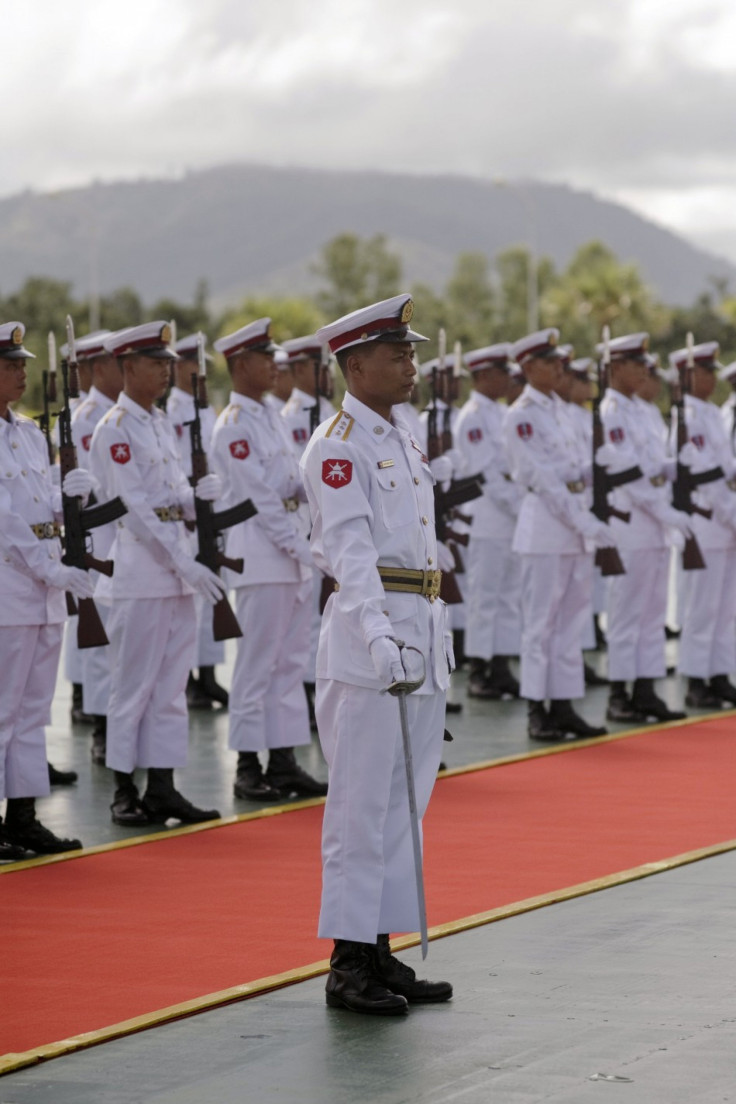Myanmar Abandons Nuclear Program: Defense Minister

Myanmar has formally abandoned its pursuit of nuclear power and has also scaled back its military and political ties with North Korea, the country’s defense minister said over the weekend.
We have already said very clearly [our nuclear program] was not for defense, it was not for weapons, it was just research in the past, Lieutenant General Hla Min said at the International Institute for Strategic Studies Regional Security Dialogue, an annual security forum, in Singapore.
Hla Min also indicated that his country’s nuclear program had not progressed very far anyway.
In reality we were just ... doing academic studies. But in this new government, we have already given up all activities on nuclear issues. And we have no further plans to extend on this.
As a result, he asserted, there is no need for the U.N. nuclear watchdog, the International Atomic Energy Agency, to visit the country and monitor its weapons programs.
We have nothing to check and nothing to see, so it is irrelevant, he said.
In addition, with respect to Pyongyang, the general said, Because of our opening and our new [democratic] efforts, we have stopped such [military] relationships with North Korea. According to our foreign policy, we have friendly relations with all countries, so it is just a regular relationship.”
Two years ago, western nations, as well as Japan and South Korea, were alarmed by reports from a defecting Burmese solider that Myanmar (also known as Burma) had acquired uranium-enrichment technology and parts for an atomic weapons program from North Korea.
Now, it appears that Myanmar, which recently held free parliamentary elections and also enacted a series of democratic reforms over the past two years since a nominally civilian government replaced a repressive military regime, is gradually moving toward a more western-friendly approach to geo-politics.
The country’s most famous dissident, pro-democracy activist Aung San Suu Kyi, was recently allowed to leave the country for the first time in 24 years.
In mid-May, the president of Myanmar, Thein Sein, assured his South Korean counterpart, Lee Myung-bak, that his country would no longer purchase weapons from North Korea. Sein took pains to emphasize that Myanmar had only bought conventional weapons, not atomic arms, from North Korea over the past two decades.
However, Reuters reported that the United Nations is probing reports that the North Koreans may have sold weapons to both Myanmar and Syria.
Hla Min also indicated that the Myanmar military, which is allotted 25 percent of seats in parliament, may play a diminishing role in the country’s affairs under a new constitution.
If you have a fish in fresh water, you cannot put the fish in salt water, so we need to take time for transformation and progress, he said. When the time is appropriate, there would be changes, and this 25 percent participation could be reduced.
© Copyright IBTimes 2024. All rights reserved.











